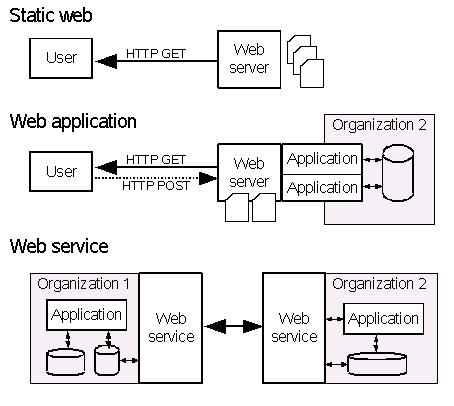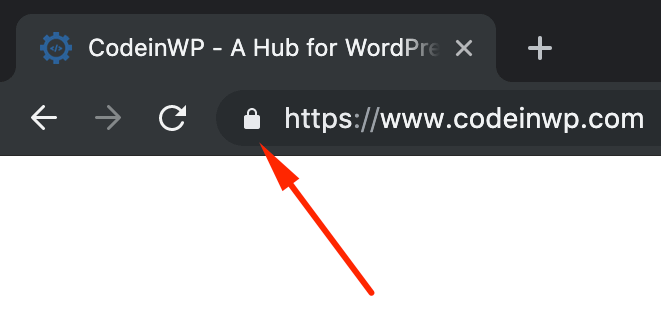
The IP address is unique and represents the location of any computer or network device, either on the Internet or in a local area network. It is used to identify, connect and link different devices and software in a system.
In order to protect data when you launch a new website or blog, you will need to get an SSL certificate. To protect your data, you will need to buy a SSL Certificate.
It is not an easy process to get an SSL Certificate. You need to meet some conditions. If you are able meet these criteria, then the SSL Certificate issued to your IP address will be issued.
A new set of guidelines from the CA/Browser Forum, effective July 1, 2012 has prohibited public SSL certificates that are issued for private IPs. This policy is intended to help reduce the chance that SSL certificates with private IP addresses are viewed as fraud by users who block them from gaining access to web pages.

To ensure that it is possible to buy an SSL Certificate with your IP address, you should speak to a professional. They can determine whether this is possible. They will also be able to provide you with all of the information necessary for you to order an SSL Certificate Private IP Address.
SSL encryption of your IP address
You can determine if an SSL Certificate requires a dedicated address by speaking with your host. This can be achieved by a simple email or telephone call.
SNI is a technology that allows you to get an SSL certificate even if your IP address is not dedicated. With this technology, it is easier to secure several domains using just one SSL Certificate.
It can also save you money because it eliminates the need to purchase multiple SSL certificates. But it's important to know that not all hosts are compatible with SNI. This means you may still have to buy a dedicated IP.
SSL for internal servers
Many webmasters ask IT professionals if it is necessary to purchase a separate IP address for SSL certificates. Today, most webservers do not have this requirement. In some cases it may be required, but for the most part, you don't need a dedicated IP to get an SSL Certificate.

Many companies use self-signed SSL certificates on internal network devices and servers. When a user visits the URL on your server, they should be able to see your site's logo and an HTTPS logo with your name, address, and a security lock icon.
SSL certificates are installed in the root directory. This is so that the browser can verify the validity of the SSL Certificate for your IP address. You can now use the SSL Certificate to encrypt sensitive information.
FAQ
How do I choose a Domain Name?
It is important to pick a quality domain name. A great domain name will help people find your site when they search for your product.
Domain names should not be too long, difficult to remember, specific to your brand, or unique. Ideal domain names are something people would type into their browser.
Here are some ideas to help you choose a domain.
* Use keywords related your niche.
* Do not use (-), hyphens in your numbers and symbols.
* Don't use.net or.org domains.
* Never use words that have already been used.
* Avoid generic terms such as "domain" and "website".
* Make sure it's available.
Do I hire a web design firm or do it myself.
Don't pay for web design services if you want to save money. Hiring someone else to make your website is a good option if you're looking for quality results.
There are many ways to create websites from scratch, without having to hire expensive designers.
If you're willing to put in the time and effort, you can learn how to make a great-looking site yourself using free tools like Dreamweaver and Photoshop.
You might also consider outsourcing your project to an experienced freelance web developer who charges by the hour instead of per-project.
What Kinds Of Websites Should I Make?
The answer to this question depends on your goals. You may choose to sell products online if you want to build a website. You'll need to build a robust eCommerce site to do this successfully.
Blogs, portfolios and forums are all popular websites. Each type of website requires different skills. For example, to set up a website, you need to understand blogging platforms such WordPress or Blogger.
When you choose a platform, you will also need to figure out how to customize the look of your site. There are lots of free themes and templates available for each platform.
Once you have decided on a platform, you are able to start building your website by adding content. Images, videos, text, and other media can all be added to your pages.
It is now possible to publish your new website online. Once your website is published, visitors will be able to access it in their web browsers.
Is WordPress a CMS?
The answer is yes. It is a Content Management System (CMS). A CMS allows you to manage your website content from within a web browser instead of using an application such as Dreamweaver or Frontpage.
WordPress is completely free! Hosting, which is usually provided by your ISP, is free.
WordPress was originally created to be a blogging platform. But WordPress now offers many more options, such as eCommerce sites or forums, membership websites and portfolios.
WordPress is simple and easy to install. You must download the installation file from their website and upload it onto your server. Then, you simply visit your domain name through your web browser and log in to your new site.
After installing WordPress, you'll need to register for a username and password. Once you log in, you will be able to access your settings from a dashboard.
This is where you can add pages or posts, images and links to them. This step can be skipped if editing and creating content is easy for you.
You can, however, hire a professional Web designer to handle the whole thing if your preference is to work with another person.
What technical skills do I need to design and construct my site?
No. You only need to have a basic understanding of HTML/CSS. There are many tutorials available online that can teach both HTML or CSS.
What is Website Design Software and How Does It Work?
Website design software is used by graphic artists, photographers, illustrators, writers, and others involved in visual media to create webpages and other digital materials.
There are two types of website design software available: cloud-based and desktop apps. Desktop apps are installed locally on the computer. You will need to install additional software. Cloud-based solutions are hosted remotely on the internet and require no additional software on your computer, making them ideal for mobile users.
Desktop Applications
While desktop applications offer more advanced features than those in cloud-based solutions, they aren't always necessary. Some people prefer to work exclusively from a desktop app because they find it more convenient. Some people prefer to use the same tool, regardless of whether it is on a phone or a laptop.
Cloud-Based Solutions
Web designers who want to save time and money should choose a cloud-based solution. These services enable you to edit any document from anywhere with an internet connection. This allows you to use your tablet while waiting for your coffee maker to brew.
If you decide to use a cloud service, you will still need a license. You will not need additional licenses to upgrade to a higher version.
These programs are available for web page creation if you have Photoshop or InDesign, Illustrator, and other Adobe products.
What is a "static website"?
A static website is possible to be hosted anywhere: Amazon S3, Google Cloud Storage or Windows Azure Blob storage. Rackspace Cloudfiles, Rackspace Cloud Files. Dreamhost and Media Temple. You can also deploy a static website to any platform that supports PHP such as WordPress, Drupal Joomla! Magento PrestaShop and others.
Static web pages can be easier to maintain as they don’t need to send requests back and forward between servers. They load quicker because they don't need to send requests back and forth between servers. Because of this, static web pages are often more suitable for smaller businesses that don’t have the resources or time necessary to manage a website.
Statistics
- Is your web design optimized for mobile? Over 50% of internet users browse websites using a mobile device. (wix.com)
- The average website user will read about 20% of the text on any given page, so it's crucial to entice them with an appropriate vibe. (websitebuilderexpert.com)
- When choosing your website color scheme, a general rule is to limit yourself to three shades: one primary color (60% of the mix), one secondary color (30%), and one accent color (10%). (wix.com)
- Did you know videos can boost organic search traffic to your website by 157%? (wix.com)
- It's estimated that in 2022, over 2.14 billion people will purchase goods and services online. (wix.com)
External Links
How To
Drupal 7: How to Use It for Web Design
Drupal is the most used Content Management System (CMS) of today. It was developed in 2003 by Dries buytaert of Belgium. The name comes from the two first letters of its developer's names, Dirk Buijtewaard and Pierre d'Herbemont. Drupal was opened source in 2005. Since then there have been many versions. Drupal is used worldwide by many websites and businesses.
Drupal is extremely popular among website owners due to several reasons. Drupal is free to download, and easy to install. It's also very easy to customize it and extend it. It is well documented. Fourth, forums and IRC channels provide great support. Fifth, it can be expanded via modules. Sixth, it supports multiple language versions. It is easy to customize. Eighth, it's scalable. It is safe. Tenth, its reliability is assured. It is also supported by the community. Drupal is a great choice for your next project because of all these factors.
You may wonder what Drupal is different from other CMS systems. The answer is simple. Drupal is an open-source content management system. Drupal is free to download and use. With Drupal, you have complete control over your website. You can edit your website, add pages or delete them, and change the colors, fonts, images and videos.
Drupal is a good choice if you don't have the technical skills to build a website. Unlike other CMS, you don't need to know anything about programming to start building your website. You only need to know how Drupal works. This will allow you to customize your website as per your requirements.
Drupal's many pre-built themes, and plugins are another benefit. These plugins will allow you to increase the functionality of your website. You can use Contact Form to gather visitor information. Google Maps is another option to show maps on your website. There are thousands of ready-made templates that come with Drupal. These templates give your website a professionally designed look.
Drupal is also flexible. Drupal is extremely flexible. You can add new modules to your site or even replace them without worrying about compatibility. You can do it quickly if you want to integrate social media into your website. You can also set-up RSS feeds, email subscriptions, etc.
Drupal is extremely customizable. Drupal lets you add custom fields, forms, manage users and much more. Drupal also allows for complex layouts.
Finally, Drupal is robust and reliable. It is stable and scalable. Also, it offers excellent security features. Drupal is an excellent web development platform.